 Iran’s Attack on Israel
Iran’s Attack on Israel
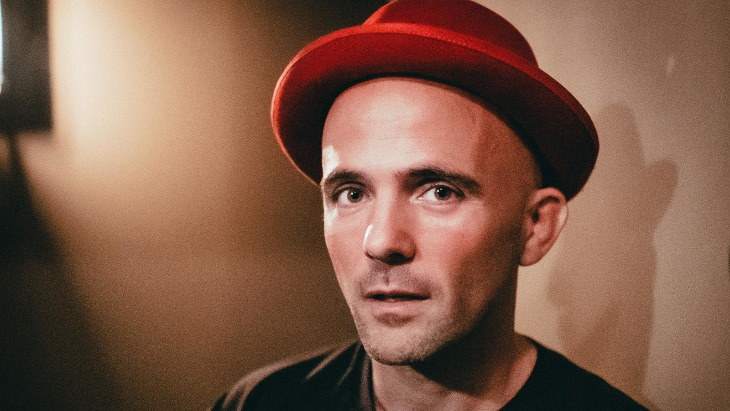

7 min read
The rapper gets philosophic about his Jewish identity and talks about his recent viral successes.
Rami Even-Esh, better known by his nom de plume, Kosha Dillz, has been having a great few months. His Hanukkah collaboration with Nissim Black, “Hanukkah Song 2.0” – a remake of Adam Sandler’s original Jewish celebrity shoutout – has been doing gangbusters. The State of Israel shared it to their official Instagram account, and it’s even found its way onto Z100, New York City’s number one Top 40 radio station.
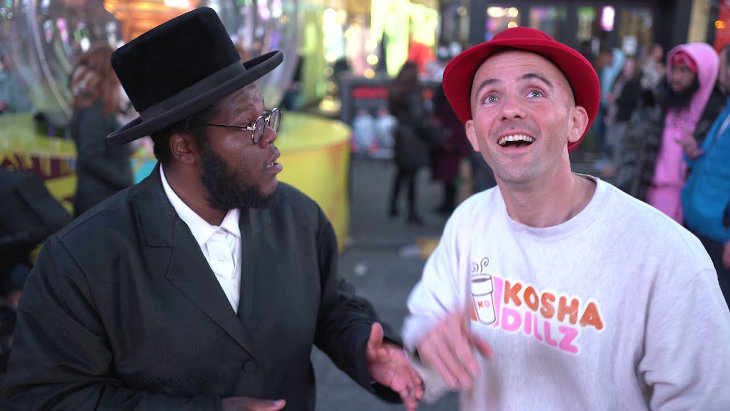
“That was very emotional for me,” Even-Esh says, “to have a song on Z100. I grew up listening to these stations.”
That Hanukkah success came hot on the heels of a video of him – which, like most strokes of good fortune, came out of the blue – going viral on TikTok (watch below). He was rapping in the rain outside a Knicks game in late October, when rap superstar, Fat Joe (Joseph Cartagena), joined him for an impromptu jam on the streets.
@koshadillz826Fat Joe just rapped with me in a Nor’easter . Only in New York #viral #noreaster #nyknicks #nyctok #terrorsquad #fatjoe #whatisnewyork #koshadillz
“I live a very faith-based life,” Even-Esh says. “That video with Fat Joe started with me rapping outside in a rainstorm and my girlfriend was filming me. It got uploaded and went so viral. It got reposted by everybody. It was nonstop. Fat Joe was reposting it a lot. That video was a miracle in itself.”
But that miracle – which, a few days later, led to Even-Eshjoining Fat Joe on stage in front of a sold-out crowd in Denver (watch below) – like most things in his life, was a long time coming.
@koshadillz826Fat Joe took me from street rappin outside @The Garden ☔️��to the stage w/ @maximbetusa . ☔️#noreaster #makeitrain #foryou #fatjoe #goated #nyc
Even-Esh started rapping in the early 2000s and called himself Kosher Dill. He broke his teeth free-styling (live, improvised rapping) on the competitive battle rap scene at places like the Nuyorican Poets Café on New York’s Lower East Side. He changed his moniker to KD Flow for a while, in an attempted to mask his Jewish identity, but after spending time in jail for drug distribution, and his subsequent sobriety, he’s since re-embraced his Jewish roots, rebranding himself with a more stylized version of his original handle, Kosha Dillz.
“I was Kosher Dill, KD Flow, and Kosha Dillz,” he says about his Jewish and Israeli roots. “I didn’t want to deal with being Kosher Dill and people knowing about the Jewish thing, so I took it down to KD Flow. I was never embarrassed of being Israeli. But back then, people made fun of people, and people booed.”
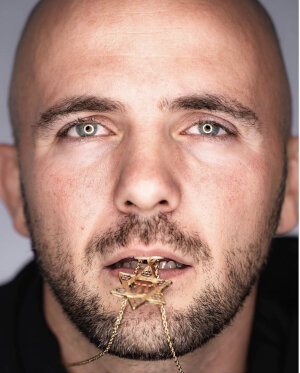
Getting booed was formative, too, and helped him develop thick skin. “When people ask, ‘How do you do what you do?’ I’ve been humiliated and booed. That’s a big part of my story. I don’t think you can really be a good rapper until you’ve been booed. I came out as Kosha Dillz and people obviously made fun of it, but I felt confident that if I was a dope rapper that I would get respect for it. I think it’s true. It’s panned out 15 years later, and here I am touring with these Jewish rappers,” he says in reference to his recent multi-city North American tour with Nissim Black.
Following his time in jail, he was navigating the challenges of post-prison life, the limitations of probation, and staying sober. To keep focused, he wrote raps, and that became his primary outlet. “I would write rhymes all the time,” he says. “My brain was moving a million miles per minute, and I couldn’t stop thinking.”
Even-Esh went back to the battle rap scene, and built his network. He eventually met Jonah David, the drummer in reggae singer, beatboxer, and rapper Matisyahu’s original backing band, Roots Tonic. That led to an introduction, and in December 2004, a performance together, which was also his first look at the Jewish world.
“I was like, ‘Whoa,’” he says. “I never saw so many Jewish people in my life. I started doing Jewish programs because these organizations were reaching out to me. With a name like Kosha Dillz in the Jewish world, people know you’re Jewish. There was this micro scene developing from that macro, which was Matisyahu. Record labels were pumping him, and he spurned up this new Jewish music scene. I was operating with that side-by-side with the underground rap scene. I was doing both, rap battles, Jewish stuff, I even went to a couple of programs at Aish.”
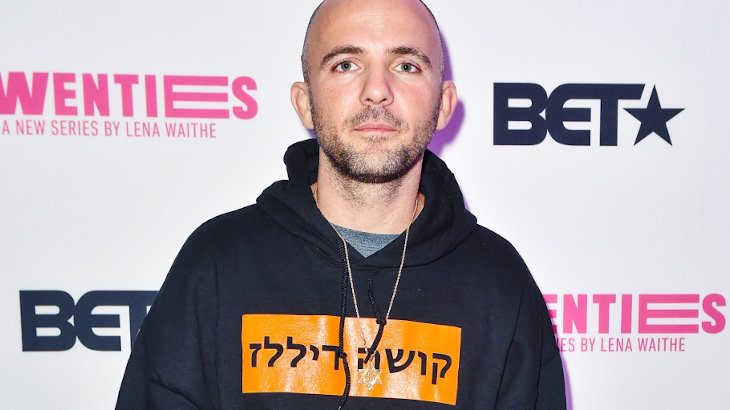
For Even-Esh being Jewish is a badge of honor. Even when free-styling in the underground rap world, being Jewish is intrinsic to his identity. “I tell people that if I was a Mexican Catholic, I would be the ‘Mexican rapper,’” he says. “I would be super proud of that. If I was Indian, I would be the ‘Indian rapper.’ I would want to do that. To represent. That’s what hip hop is essentially about, it’s about representing who you are. Who I am. Represent myself to the fullest in the best possible way.”
That’s not to say that hip hop is a pristine temple to authenticity. “There are plenty of inauthentic things happening,” he adds. “People telling you how many things they have. But that’s not what I am into. For me, and as a culture, hip hop is about authenticity and keeping it real with yourself and keeping it real with the crowd. Authenticity is what it’s about: where you’re from, where you’re at, and where you’re going.”
But wearing his Jewishness on his sleeve is very different from being a “Jewish rapper.” For him, that’s a bridge too far. “My only pet peeve is that we are so insular, we don’t understand what it means to be outside,” he says. “You know, nuance and stuff like that. When we shot the Hanukkah music video in Times Square, there were a bunch of people harassing us for being fake Jews, and antisemitic stuff, but because the song was so good we didn’t bother to talk about it. We want a song to be judged for being a dope song and not for getting press just for people hating Jews.”
In other words, being Jewish isn’t a gimmick, and being an artist means creating work that stands on its own. It’s not about being good enough in a myopic Jewish bubble, but mediocre when judged by the objective standards of the real world.
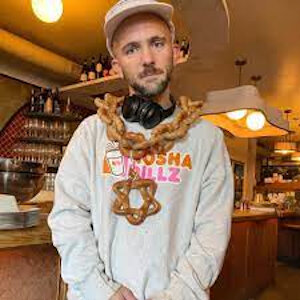
“That’s my message for Jewish creators,” Even-Esh adds. “If you’re a good creator, you can stand on your own being a good creator. We have this community of other great stuff that’s really cool and other people get inspired, but the goal is to not be a good Jewish person, the goal is to be so good that everyone has to listen to you, and then you can tell your Jewish experience story.”
Even-Esh has been living those values for a long time. The process is slow, but he sees the blessings coming his way, and he’s hopeful for the future. “That’s the course of life,” he says. “You get some help along the way and then you blossom into your own. That’s everyone’s journey, too. You want to be able to stand with someone, and then you make room for your partner.” And in the process, you make a name for yourself as well.
Photo Credit: Jacob Carlson @checkoutjacob
